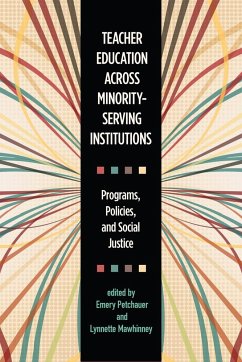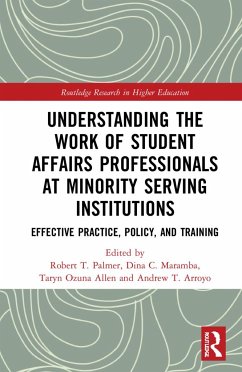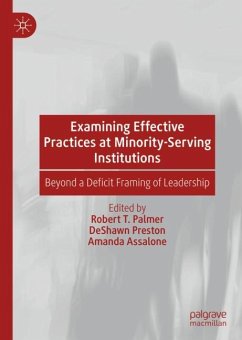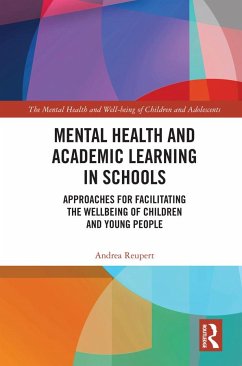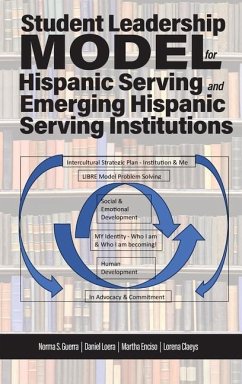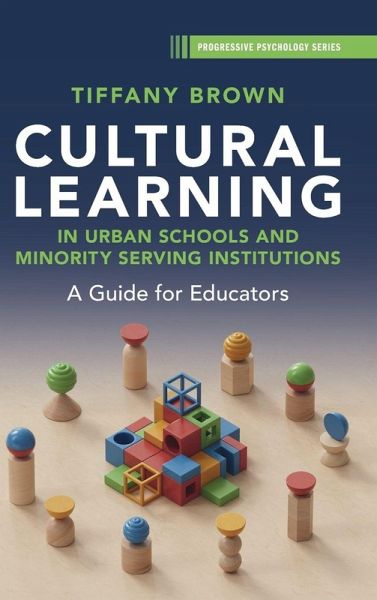
Cultural Learning in Urban Schools and Minority Serving Institutions

PAYBACK Punkte
42 °P sammeln!
This book provides a comprehensive analysis of the social and organizational factors shaping K-16 teachers' cultural learning processes, through both a systematic review of the extant literature on K-12 urban teacher thinking and interviews with instructional staff at a high-performing minority serving institution (MSI). It highlights common challenges K-16 educators face in navigating cultural differences between themselves and their students. Drawing from cultural psychology, organizational behavior, and organizational psychology, the book offers evidence-based insights for creating school s...
This book provides a comprehensive analysis of the social and organizational factors shaping K-16 teachers' cultural learning processes, through both a systematic review of the extant literature on K-12 urban teacher thinking and interviews with instructional staff at a high-performing minority serving institution (MSI). It highlights common challenges K-16 educators face in navigating cultural differences between themselves and their students. Drawing from cultural psychology, organizational behavior, and organizational psychology, the book offers evidence-based insights for creating school systems in which educators working with students from low-income and other minoritized cultural communities can critically examine and challenge their cultural assumptions to create more inclusive and supportive learning environments for all students, as well as develop and implement more culturally responsive classroom management practices.





